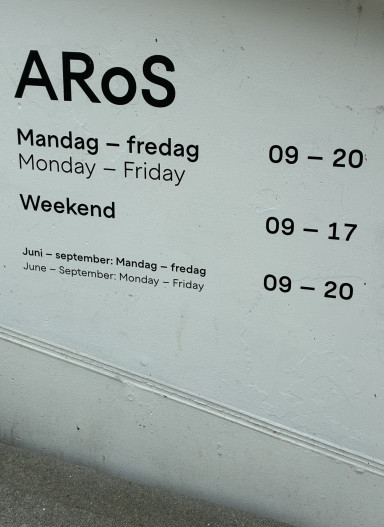

Stephan
Zilkens
,
Zilkens' News Blog 41 2025
Art Jakarta has just come to an end – Esther Schipper was among those in attendance this time – In Europe, we can look forward to Frieze in London and the Art Salon in Zurich, and at the end of the month we will finally be heading to Paris for Art Basel at the Grand Palais. In Cologne, one day before the opening of Art Cologne on 5 November, there will be the opening of an exhibition featuring works by Jim Harris, whom you may know from our website. Pop Up No. V at Villa Minima at Römerturm 15 – you are cordially invited from 6:30 pm.
The week was once again full of contradictions – and examples of how differently art and culture are treated in Europe. First, there is Carl Spitzweg's ‘The Poor Poet’, that romantic symbol of German introspection, which has been missing without a trace since it was stolen from Charlottenburg Palace in 1989. Two versions still exist – one in the Neue Pinakothek in Munich, one in private ownership. But now the work has reappeared in digital form: in UNESCO's new Virtual Museum of Stolen Art, which aims to make stolen or missing works of art visible worldwide. A noble idea – and one that reminds us that cultural memory can somehow be preserved in the cloud. The museum's presentation is rather confusing because you constantly feel like you're in free fall – every now and then an object appears – currently 241 in total.
Also real, albeit difficult to digest, is the recent ruling by a Moscow court against Maria Smorzhevskikh-Smirnova, director of the Narva Museum in Estonia. Ten years' imprisonment in absentia for comparing Putin to Hitler. The Kremlin calls it ‘spreading false information’; the rest of the world calls it censorship. Culture as a political weapon – this is not a poetic but a cynical state of affairs.
In contrast, the DVfK's study day on medieval art, which will take place in Paris and Lens on 24 and 25 November 2025, is moving in more peaceful waters. Topics: Forgery, imitation and fascination with the Middle Ages in the 19th century – from ‘Gothiques’ at the Louvre-Lens to ‘Le Moyen Âge du XIXᵉ siècle’ at the Musée de Cluny. A long journey for medieval research, which is probably more of a challenge in Germany.
Dr Alexander Wiebe is moving to Segurio in Vienna. The company, which sees itself as a digital insurance broker for art and collections, is considered rather problematic in the industry. Many traditional insurers are cautious when it comes to capacity, we hear – too many unanswered questions, too much marketing and not clearly identified as an underwriting agent. Segurio as a white label for small businesses in the art sector? We shall see.
Let's take a look at Berlin, where the Senator for Culture has announced her intention to maintain free admission to museums on Sundays – but ‘without additional funds’ and with the caveat that there is ‘no money available for investment in state-owned properties’. A formulation that politely conceals the fact that the city is allowing its own museums to fall into disrepair. Cologne can tell a sad tale about this: three museums there have now closed because no money was invested in maintaining the buildings for years. If this is what cultural policy looks like, then even the most wonderful free Sunday is of no help – after all, you can't charge admission to a museum that is effectively inaccessible.
On 17 November, experts will meet in Berlin for the Art Experts' Day. Anyone who knows the market, the museums and the mechanisms involved knows that there is often a gulf between idealism and reality, which can best be bridged with good arguments. Art remains what it always was: a mirror of a society that must show what it values – and what it allows to fall into decay.
Incidentally, we will be changing our email addresses to Zilkensfineart.com – you may have already noticed this.
Stephan Zilkens and the team at Zilkens Fine Art in Cologne and Solothurn.
automatically translated